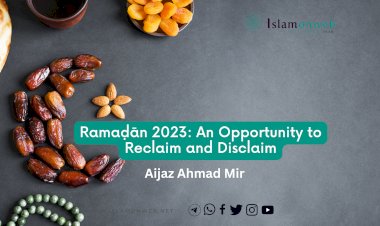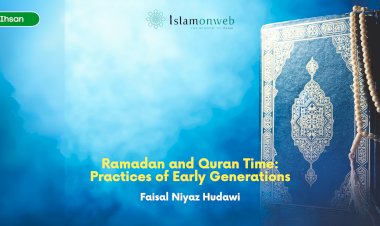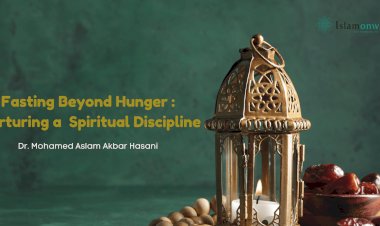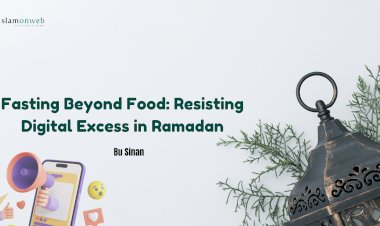Insights from Ramadan
What is the goal of Ramadan fasting? The Quran provides the answer in chapter 2, Al-Baqarah, verse 183: fasting is obligated to cultivate Taqwa (God-consciousness).
The term 'Taqwa' is commonly used among believers, though its exact meaning may not always be clear. Scholars have offered various definitions.
When asked about ‘Taqwa’, Aliyy bin Abi Talib, the Messenger’s (peace be upon him) son-in-law and Fourth Caliph replied, "Taqwa (God-consciousness) is fearing the Magnificent, i.e., Allah, acting upon the Revelation, being content with little, and preparing for the Day of Departure."
- Believers are urged to fear displeasing Allah, the most merciful, whose displeasure can lead to failure in both worlds. Being conscious of our thoughts and actions nurtures mindfulness in our lives. It cherishes adab(ethical behaviour) and ihsan(pursuit of excellence) in the hearts. The person, his nears and dears, and the nation itself are beneficiaries of this character.
- 'Revelation' refers to the Quran, considered a guide for Islamic living and a manual bestowed by the Creator upon His beloved creatures. Studying the Quran and embodying its values are essential. The Quran has to be read as it is revealed to the reader. When reading the Quran, a person listens to Allah. During the prayer, Allah listens to us. In that way, the conversation happens nicely.
- Contentment is paramount, as it cultivates gratitude. In today's world of social media and comparison, practicing gratitude and an attitude of “never ever complain” are vital messages of Ramadan. That helps to see the beauty of today, rather than the worries of yesterday and fears of tomorrow.
- Believers are certain about the afterlife, where everyone will be judged based on their deeds. This world serves as preparation for the next, emphasizing humanity, good behaviour, kindness, respect, and obedience to Islamic teachings to attain well-being in this life and success in the hereafter. Islamic teaching is “Work for your worldly life as if you will live forever, and work for your hereafter as if you will die tomorrow.” This attitude will greatly contribute to being highly productive in endeavors aimed at creating lasting positive impacts in the world, coupled with sincere intentions for the future.
Let Ramadan be a time for personal transformation and striving towards a better version of ourselves
Eid Mubarak to all readers
About the author: Sayyed Mohamed Muhsin, PhD is Assistant Professor of Islamic jurisprudence at the International Islamic University Malaysia (IIUM), Kuala Lumpur. He also serves as Editor-in-Chief of Islamonweb-English (https:/
Disclaimer
The views expressed in this article are the author’s own and do not necessarily mirror Islamonweb’s editorial stance.
























Leave A Comment